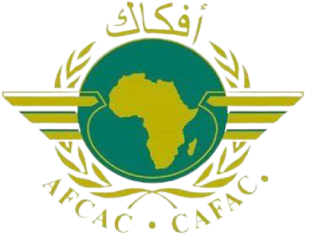Capacity Building Workshop on Aviation Data, Dakar, Senegal, 13 - 16 May 2025
The Capacity Building Workshop on Aviation Data, organized by AFAC in collaboration with EASA was held from 13 to 16 May 2025 at AFCAC Headquarters in Dakar, Senegal.
The Workshop brought together 46 aviation experts from across Africa to strengthen the continent’s approach to aviation data collection, analysis, and reporting.
The European perspective, primarily represented by EASA's, was effectively advocated through its enabling role. The AFCAC Secretary General explicitly thanked EASA for their collaboration, highlighting their partnership . The argument was not about imposing a European model, but rather about EASA facilitating a crucial African-led initiative. By supporting this capacity-building event, EASA helped create a platform for African states to share knowledge, identify common challenges, and develop their own solutions for data management, aligning with international best practices. This act of partnership, empowering African stakeholders to improve their aviation data ecosystem, effectively conveyed the European commitment to enhancing global aviation safety, efficiency, and integration, which is a shared interest.
A key conclusion was the strong willingness among African states and regional bodies to collaborate and harmonize their approaches to data collection, analysis, and sharing. The activity confirmed that while significant challenges exist (data fragmentation, lack of legal frameworks, funding gaps, technical limitations), there is a collective commitment to overcoming them. The importance of strong leadership from AFCAC, sustained capacity building, and the development of robust, secure, and interoperable data systems were highlighted as essential for progress. Finally, the hybrid format proved effective in enabling broad participation.
DESCRIPTION
The workshop spanned over four days, beginning with an opening session featuring remarks from AFCAC, ICAO, and ACI Africa, followed by a group photo and an overview of objectives. The first technical sessions introduced the fundamentals of aviation data, discussed current challenges in data collection and submission, and provided a detailed presentation on ICAO statistical forms and reporting requirements.
The second day focused on practical capacity building. Sessions covered data management techniques and analysis, followed by experience-sharing presentations from well-performing states such as Angola, Namibia, Côte d’Ivoire, Tanzania, Cabo Verde, Nigeria and Togo. The day concluded with open discussions to identify challenges and solutions in aviation data management.
During the third day, participants explored regional and international collaboration, with a session led by ACI Africa. The remainder of the day was dedicated to group discussions on the future of aviation data in Africa, specifically the adoption of a common data platform. Groups addressed topics such as data policy, platform scope, integration challenges, governance, security, and stakeholder collaboration.
The final day recapped key takeaways and focused on developing a concrete action plan at both state and continental levels. The workshop concluded with a summary of outcomes and closing remarks from AFCAC, setting the stage for continued collaboration and implementation of the agreed recommendations.
LEADING EXPERT and KEY INTERVENTIONS
The Workshop was led by Ms Raffaella Irie, EASA contracted expert (NTU) together with the following African States delegates:
- Côte d’Ivoire (Mr Toto Pascal, ANAC): Showcased their ASTATS bulletin and data publication system, demonstrating organised national data reporting.
- Namibia (Mr Melvin April): Shared post-2021 strategies including appointing focal points and automating reminders to improve data submission compliance.
- Tanzania (Mrs Zawadi Suleiman Bikki): Highlighted robust compliance measures and development of a digital platform for faster data processing.
- Angola (Mr Osvaldo Bambi): Presented a comprehensive multi-period data collection approach and strong collaboration with data providers.
- Cabo Verde (Mr José David Fernandez): Introduced an online data submission and publication solution facilitating stakeholder interaction.
- Nigeria (Mr George Ajibose, NCAA): Described a regulatory framework mandating digital data submission with enforcement mechanisms including penalties.
- Togo Presented the API-PNR system, an automated alternative to manual data submission, improving accuracy and efficiency.
The main conclusions and Recommendations
- Data Deficiencies
There are persistent challenges such as inconsistent data collection and reporting by states, lack of regional coordination, limited awareness of data's transformative potential, and difficulties in standardising submission processes. Specific issues include data fragmentation, resistance from data providers, outdated infrastructure, and lack of enforcement or legal frameworks.
- Need for Harmonisation and SAATM Support
The successful implementation of SAATM heavily relies on accurate and harmonised data for monitoring, policy-making, and ensuring fair competition. Fragmented regulations at continental, regional, and national levels hinder this.
- Strategic Decision-Making
Reliable data is crucial for informed decision-making by governments, Civil Aviation Authorities (CAAs), airlines, airports, and other stakeholders in areas like safety oversight, route planning, infrastructure investment, and economic forecasting.
- Recommendations
- Develop model regulations and guidelines for aviation statistics, led by AFCAC, to support national legal frameworks.
- Expand capacity-building and practical training, especially on ICAO forms and digital tools, in partnership with ICAO, ACI Africa, and AFRAA.
- Establish national statistical focal points and integrate national systems with SAATM KPIs.
- Foster regional collaboration through state clusters, with well-performing states mentoring others.
- Implement robust data protection, security, and trust-building measures to encourage data sharing.
- Mobilize sustainable funding, combining government resources, donor support, and innovative cost-recovery mechanisms.
- Encourage regular, timely reporting and continuous dialogue between AFCAC, ICAO, and national authorities.
Posted: Jun 04, 2025


